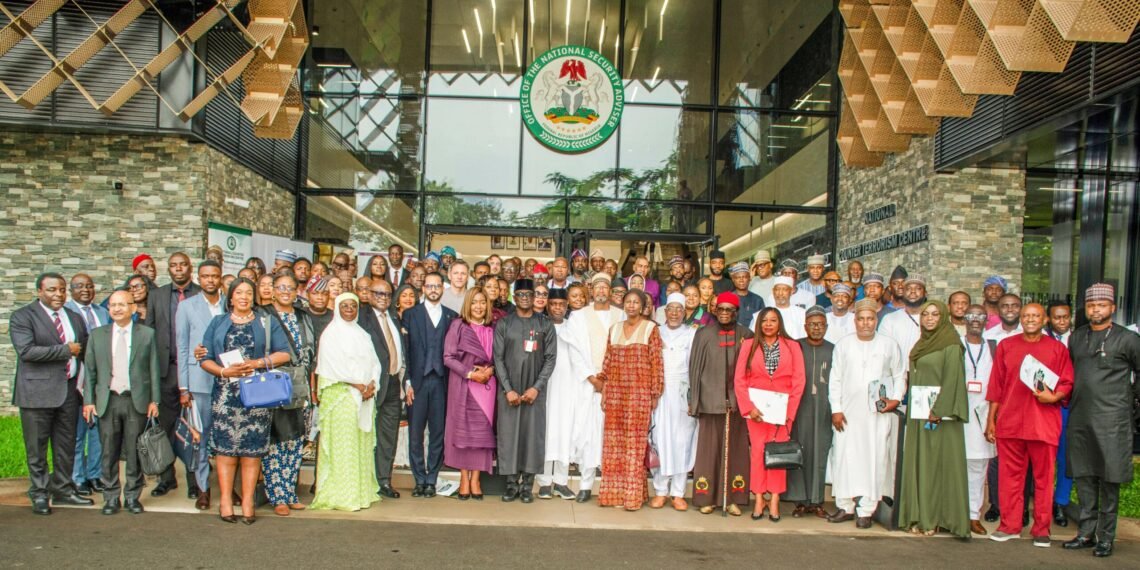The National Counter Terrorism Centre (NCTC) has engaged strategic security stakeholders in the South-East on the harmonisation of disarmament, demobilisation and reintegration framework to be holistic, people-centred and sustainable.
In an address at the engagement in Enugu on Tuesday, the National Coordinator of NCTC under the Office of the National Security Adviser (ONSA), Maj. Gen. Adamu Laka, said that insecurity undermines national stability, socio-economic growth and cohesion.
The two-day engagement is being organised by the Office of the National Security Adviser (ONSA) through the NCTC centre in collaboration with the Government of UK – Strengthening Peace and Resilience in Nigeria (SPRiNG) Programme.
Represented by Ambassador Mairo Abbas, Director, Prevention and Countering Violent Extremism in NCTC, Laka said that the nation must break the cycle of violence by creating viable alternatives for individuals and communities caught in conflict and criminality.
According to him, the disarmament, demobilisation and reintegration framework is internationally recognised as a comprehensive approach for breaking the cycle of violence by offering structured and sustainable exit pathways for individuals involved in armed or criminal groups.
He said that the disarmament, demobilisation and reintegration process would help them transition from combatant identities toward productive civilian lives, adding “disarmament, demobilisation and reintegration is not merely about disarming people or dismantling armed groups.
Read Also:
- South East PDP gets new youth leader
- Resolve marginalization of South East by creating Adada State, Nwodo urges Reps c’tte
- 2027: South East group raises N200m to purchase nomination form for Tinubu
“It is about offering hope of healing for trauma, hope of dignity through economic empowerment, and hope of justice through accountability and reconciliation for affected persons particularly victims.
“For too long, responses to violent conflict in Nigeria have been fragmented, reactive and limited in scope; while different states and actors have developed local initiatives some with success, others with limited impact.
“However, the absence of a unified, strategic and nationally aligned framework has resulted in unsustainable responses,” he said.
Speaking, the Chairman of the South East Development Commission (SEDC), Chief Emeka Atuma, thanked the centre for the disarmament, demobilisation and reintegration framework initiative, adding that “without peace, there will not be a sustainable and holistic development in the zone”.
Represented by Chief Toby Okechukwu, the Executive Director (Projects) in the SEDC, Atuma said that the commission was fashioning out a robust youth skill engagement programme that would reinvigorate the productive capacity in the zone.
Chairman of the Anambra State Council of Traditional Rulers, Chidubem Iweka, decried the human and financial losses the zone had incurred due to violent conflicts and the Monday Sit-at-Home order.
Iweka, who spoke on behalf of the traditional institution, urged the federal government to release Nnamdi Kanu so that the zone would distinguish between genuine Biafra agitators and bandits/gangsters.






